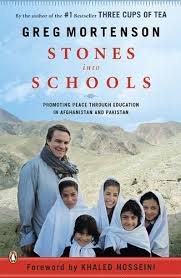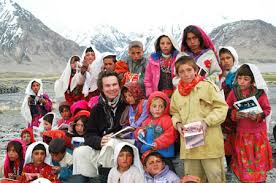I have always regarded memoir as a legitimate form of fiction.

This literary form has been once again called into question by the allegation that Greg Mortenson, author of the bestselling Three Cups of Tea, lied; that he may not have been saved by the villagers of Korphe, and he may have drunk only two cups of tea.
Montana’s attorney general is investigating possible “mismanagement of funds,” known in less literary circles (say, law courts) as fraud. He probably isn’t too concerned when or whether Mortenson went to the village of Korphe. Neither am I, really.
Memoirs are based on memory, which has been shown to be selective, fallible, and, when useful, inventive.
It is from memory that we create myths about ourselves. They are part of the personas or masks that we wear in public. And most of us are guilty of embellishing and exaggerating: we are smarter, kinder, braver, nobler than we, living behind the mask, know we are. Memoirists just do it on paper, the literary equivalent of padding one’s resume.
Many writers wrestle with this issue.
Dorothy Gallagher, author of How I Came Into My Inheritance and Other True Stories, admits to the tempting pull of a good story over the drab, humdrum facts of one’s life. “Storytelling insists on itself,” she writes.
 “But there is nothing in my stories that did not happen. In their essence they are true. Or a shade of true,” reminding one of Stephen Colbert’s “truthiness.” Or, like Sally, a character in my Tales of Tokyo, confesses: “It was just too good of a story not to be true!”
“But there is nothing in my stories that did not happen. In their essence they are true. Or a shade of true,” reminding one of Stephen Colbert’s “truthiness.” Or, like Sally, a character in my Tales of Tokyo, confesses: “It was just too good of a story not to be true!”
Andre Aciman, author of Call Me By Your Name, flatly accepts that “all memoirists lie.” He writes, “We alter the truth on paper so as to alter it in fact; we lie about our past and invent surrogate memories the better to make sense of our lives and live the life we know was truly ours.”
James Frey, author of the now “highly fictionalized memoir,” A Million Little Pieces, had to face the wrath of Oprah Winfrey because of the imaginative elements in his story. Given the choice, I think I would rather be investigated by Montana’s attorney general.
Some writers get around this tricky, sticky “truthiness” dilemma by projecting their personal myths into fiction. W. Somerset Maugham went so far as to declare that “All novels are autobiographical.” Gee, even Harry Potter?
An interviewer once commented to May Sarton, known for her journals as much as her novels and poetry, that he found the journals strangely impersonal. To which Sarton replied that she put the intimate, personal stuff into her novels.
The issue is complicated in Mortenson’s case in that he may have made money—lots!—from his exaggerations, a predicament most writers do not need to worry about.
 Another claim is that people not only believed his story but also donated money because they believed an account that now turns out to be “a shade of true.” I suspect we donated our money not because he was cared for in the village of Korphe, but because his work—the building of schools and the education of girls—is something we believe in and want to support.
Another claim is that people not only believed his story but also donated money because they believed an account that now turns out to be “a shade of true.” I suspect we donated our money not because he was cared for in the village of Korphe, but because his work—the building of schools and the education of girls—is something we believe in and want to support.
Ultimately, it may come down to a matter of degree: where we embellish, Mortenson lied. Or perhaps, like most of us, he just came to believe in his own myth.
This article first appeared in The (Longview) Daily News, December 31, 2011.



